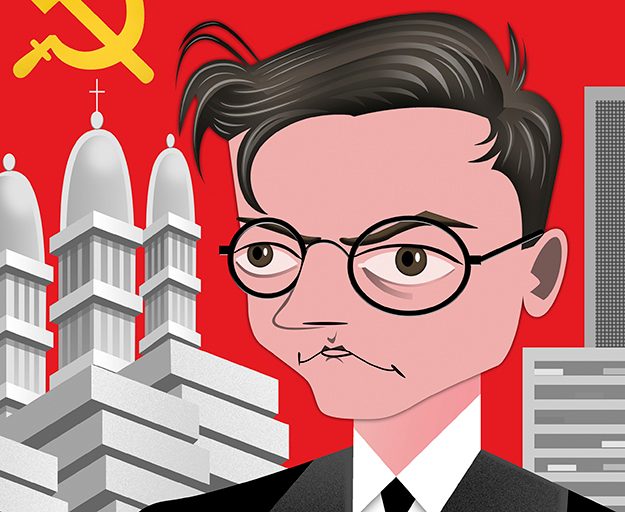The communist administration accused him of having bourgeois sensibility: who is Shostakovich?
This condemnation and accusation showed its effect on his understanding of art. After that, he started to produce works that did not contradict social realist art.

The 7th Symphony (Leningrad Symphony), which is about the people's struggle against the German armies that entered the USSR, was met with great enthusiasm when it was performed during the most violent days of the war.
Dmitri Shostakovich; was a USSR composer (St Petersburg 1906-Moscow 1975). He was the son of a musical family. He studied music at the Glasser School of Music in St. Petersburg and then at the Petrograd Conservatory. He became famous not only in his country but also all over the world with the 1st Symphony he wrote as a graduation work in 1925. During the Stalin era, he faced severe criticism from official circles. His opera Lady Macbeth of Mtsenk (later Katarina Ismailova), which he composed in 1932, was banned because of being charged with petty-bourgeois sentiment. This event showed its effect on his understanding of art.
Dmitri Dmitriyevich Shostakovich (25 September 1906 – 9 August 1975) was a Soviet-era Russian composer and pianist who became internationally known after the premiere of his First Symphony in 1926 and was regarded throughout his life as a major composer.
After that, he started to produce works that did not contradict social realist art. He was acclaimed with his 5th Symphony performed in 1937, he was appointed as a composition teacher at the Leningrad Conservatory, his 7th Symphony (Leningrad Symphony), which was about the people's struggle against the German Armies that entered the USSR during the Second World War, was greeted with great enthusiasm when it was performed during the fiercest days of the war. He won the Stalin Prize in 1940. He was honored with the title of People's Artist in 1954 in parallel with the softening of the state's art policy after Stalin's death. He became a member of the Communist Party in 1960. Returning to his lessons at the conservatory in 1963, he was chosen as the Hero of Socialist Labor in 1966 and was given the authority to represent his country abroad.
Shostoković's music, which is one of the leading composers of the 20th century, especially his symphonies, often bears the traces of Tchaikovsky, Prokofiev, Mahler, Sibelius, Berg, and Hindemith, although it shows periodic changes. Chosen as honorary members of the Swedish Academy of Music and the National Academy of Santa Cecilia in Rome for his work, the composer received the Sibelius Prize in 1958 and the gold medal of the British Royal Philharmonic Society in 1966. He was also awarded an honorary doctorate in music by the universities of Stockholm, Rome, and Oxford.
Major works: Orchestral music: Symphony No: 3 (May 1) 1929, I Piano Concerto (1933). Concerto: 1st Violin Concerto (1948), Festival Overture 1954, 2nd Piano Concerto 1957,1. Cello Concerto 1959, Symphony No: 15 1971 Ballet Music: Golden Age 1930, Film Music: Volocheyevka Days (1936), Berlin Falls 1949. Also Music: I. String Quartet 1974. Misc: Five Preludes for Piano 1920-1921, Three Fantastic Dance, for piano 1922, Suite for Jazz Orchestra No: I 1934, The Murder of Stenka Razin, cantata 1964, Soviet Soldiers March 1970.
